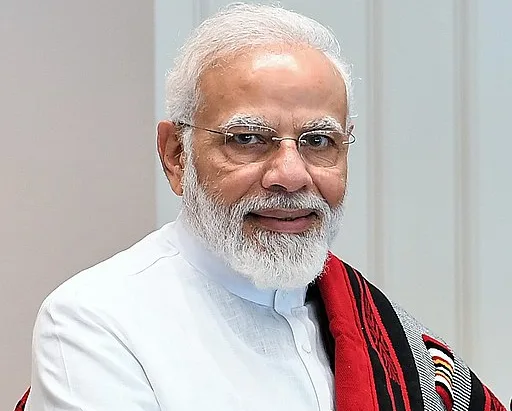Despite a rain delay, Prime Minister Modi leads a 30-minute yoga session in Srinagar to mark the 10th International Yoga Day under the theme “Yoga for Self and Society.”
International Yoga Day 2024 commenced with Prime Minister Narendra Modi leading a yoga session in Srinagar, despite a delay caused by heavy rains. Initially planned to take place on the banks of Dal Lake, the event was moved indoors due to the weather conditions. The 30-minute yoga session led by PM Modi emphasized this year’s theme, “Yoga for Self and Society,” highlighting the importance of yoga in promoting individual well-being and social harmony.
In his address, Prime Minister Modi underscored the global significance of yoga, calling it an agent of global good. Over the years, he has led Yoga Day celebrations at various iconic locations, including Delhi’s Kartavya Path, Chandigarh, Dehradun, Ranchi, and Jabalpur. Last year, he led the event at the United Nations Headquarters in New York, drawing international attention to the initiative. This year’s celebration in Srinagar aims to further elevate the global profile of International Yoga Day.
Embed from Getty ImagesAcross India, various notable figures and institutions participated in the celebrations. Lok Sabha Speaker Om Birla performed yoga at the Parliament House Complex, while security officials at the Taj Mahal also took part in the event. At the Attari border, Indian soldiers performed yoga, and in the Thar Desert, Border Security Force officers participated on the sand dunes of Jaisalmer. Even the Indian Army’s canine squad joined in, performing yoga alongside soldiers.
Uttar Pradesh Chief Minister Yogi Adityanath, along with Governor Anandiben Patel, participated in yoga sessions at the Raj Bhawan. Adityanath praised Prime Minister Modi’s leadership, noting the worldwide participation in International Yoga Day and emphasizing yoga’s role in promoting humanity and unity.
Analysis:
Political: PM Modi’s leadership in promoting International Yoga Day highlights India’s soft power and cultural diplomacy. By emphasizing yoga, India strengthens its cultural influence globally. Modi’s consistent involvement in Yoga Day activities underlines his commitment to promoting a healthy lifestyle and national unity, resonating with his broader political agenda of cultural nationalism.
Social: The theme “Yoga for Self and Society” underscores yoga’s dual role in enhancing personal health and fostering social cohesion. The widespread participation across diverse locations, from iconic landmarks to remote regions, demonstrates yoga’s unifying power. Social media coverage and public figures’ involvement amplify yoga’s reach and significance in contemporary society.
Racial: International Yoga Day promotes inclusivity, inviting people from all races and backgrounds to participate. It underscores yoga’s universal appeal and its potential to bridge cultural and racial divides. The global observance of the day reflects yoga’s transcultural impact, fostering mutual respect and understanding.
Gender: Yoga Day celebrations often highlight the inclusive nature of yoga, encouraging participation from all genders. The visibility of female leaders and practitioners in the celebrations challenges traditional gender roles and promotes gender equality. Yoga’s holistic approach to health resonates with contemporary movements advocating for gender inclusivity in wellness practices.
Economical: International Yoga Day has significant economic implications, boosting tourism and wellness industries. Events like those in Srinagar can attract visitors and promote local economies. Additionally, the global recognition of Yoga Day enhances India’s brand as a wellness destination, potentially increasing revenue from yoga-related tourism and international collaborations.
